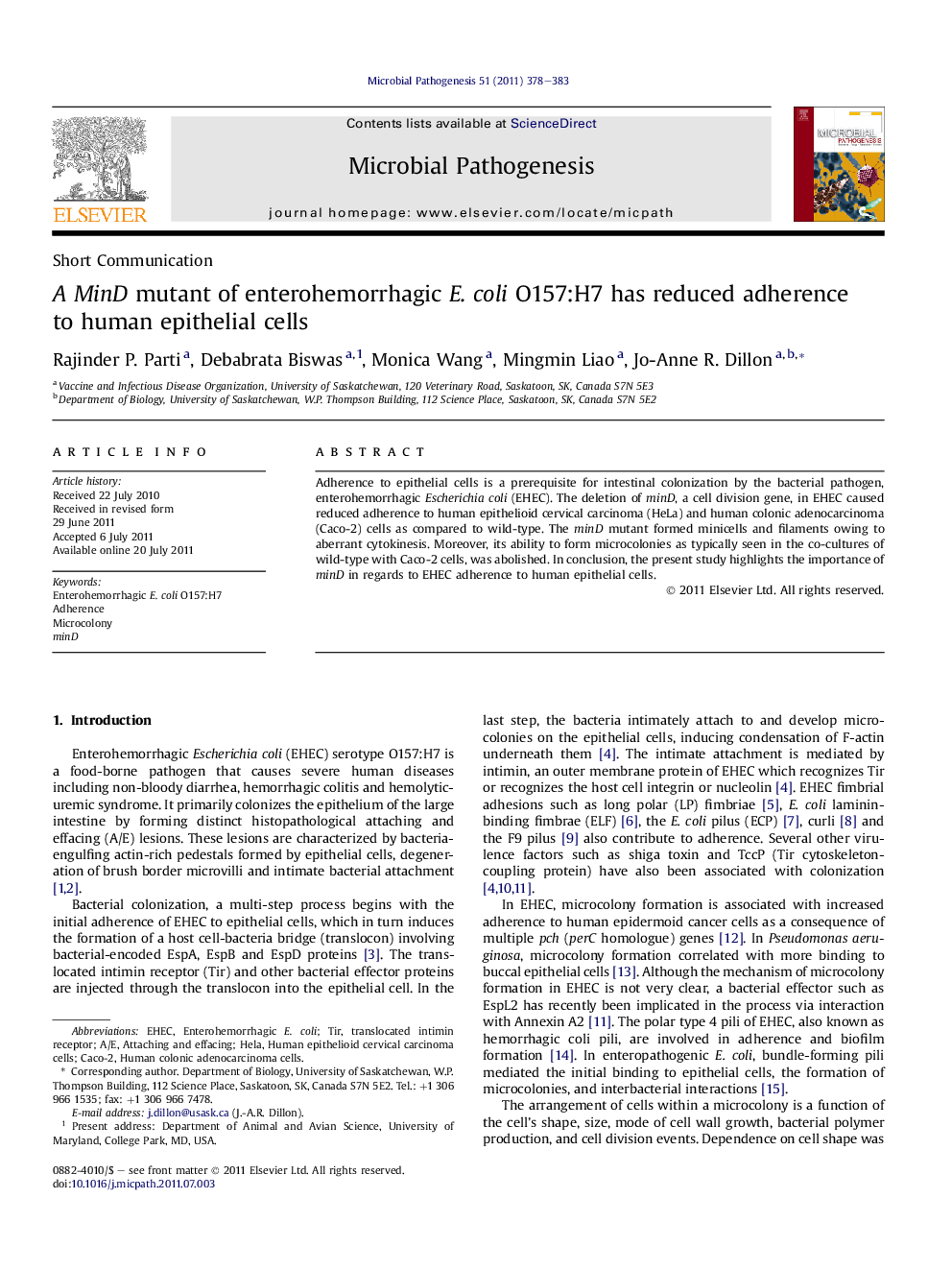| کد مقاله | کد نشریه | سال انتشار | مقاله انگلیسی | نسخه تمام متن |
|---|---|---|---|---|
| 6136431 | 1225146 | 2011 | 6 صفحه PDF | دانلود رایگان |

Adherence to epithelial cells is a prerequisite for intestinal colonization by the bacterial pathogen, enterohemorrhagic Escherichia coli (EHEC). The deletion of minD, a cell division gene, in EHEC caused reduced adherence to human epithelioid cervical carcinoma (HeLa) and human colonic adenocarcinoma (Caco-2) cells as compared to wild-type. The minD mutant formed minicells and filaments owing to aberrant cytokinesis. Moreover, its ability to form microcolonies as typically seen in the co-cultures of wild-type with Caco-2 cells, was abolished. In conclusion, the present study highlights the importance of minD in regards to EHEC adherence to human epithelial cells.
âºminD, a cytokinesis gene, is important in adherence of EHEC to human epithelial cells. âºminD mutant of EHEC is defective in microcolony formation. âºMutation in minD does not affect shiga toxin production.
Journal: Microbial Pathogenesis - Volume 51, Issue 5, November 2011, Pages 378-383